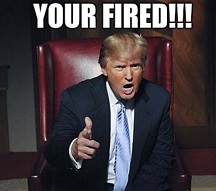In every profession, there is ample opportunity for complaint. Before you contact human resources or the press, though there are career considerations you need to assess. Likely, your action will kill your career at your place of employment, and possibly follow you anywhere that you go.
There could be a long general discussion on ethics and beliefs, and since each case is unique, I want to illustrate a starting point for your consideration. This is because I have friends, relatives, and colleagues that have ruined their careers for minor complaints or whistleblowing actions that they later regret. Most were warned about the backlash, and never expected any consequences to hit them personally, but they did. Plus, you’ve likely read or heard about numerous similar cases or very public ones that occur every day.
There is an old saying: “There is no such thing as a smart mob.” This also applies to employers, both public and private. Once you’ve been labeled as “a trouble maker” or “traitor/disloyal” then you become radioactive to your supervisor, manager, union, or anyone else with hiring authority. It is a permanent stigma that taints your reputation, no matter how justified the reason may have been. Perhaps you’re a hero for getting a policy changed for the better, but you will personally pay the price in lost career opportunity. The consequences for going to human resources, regulators, the press, or anyone with your complaint could be immediate dismissal (in spite of any state or federal rules to the contrary), or finding yourself demoted to the bottom rung of the career ladder for the remainder of your career. The more public your whistleblowing escalates, the higher your risk for smear campaigns, harassment to you and your family, blacklisted, death threats, and more by anyone else threatened by your actions.
If you are aware of imminent harm to befall others, that is a different level of issue than the person in the next cubical getting a slightly larger office that has less seniority than you. In this context, where on the spectrum of concern or consequences does your issue fall:
- Is the public unknowingly putting their lives or health at risk?
- Are customers being defrauded?
- Is there systematic unfair treatment against a group?
- Is this a personality issue between individuals?
Of course, if the public or people are being put at health or financial risk, action must be taken. But must it be taken by you? Could others already be aware of the situation and working on actions that you may not know about? Today, there are many ways to make an anonymous notification to regulators or law enforcement without anyone figuring out that you alerted them. Inside a large organization, it is possible in some scenarios to make anonymous accusations about issues. But be aware that without courtroom proof from someone coming forward to interrogate, human resources or regulators cannot do much or anything about it.
The big question you have to decide is: is this issue so important to you that it is worth ending or stunting my career? If it is, that is fine. But few people think through all of the career and financial consequences and are blindsided when their colleagues, supervisors, and others begin cutting you out of their lives. If there is an issue that is a big problem, but just for you personally and not worth potentially ending your career, it is time to get another job. If you’re working for a large company, perhaps you can move to a different department, division, or group. But for most, it means seeking employment with a different company or organization.

